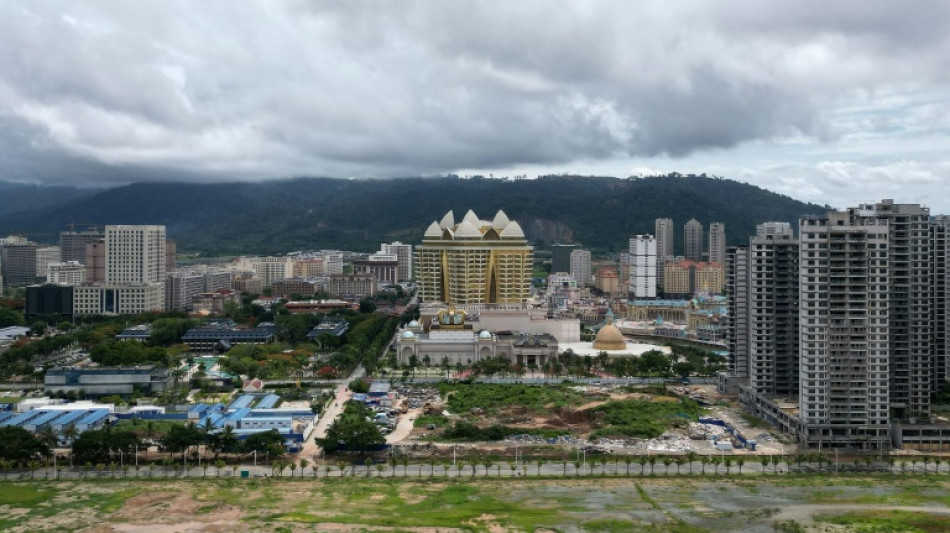
-
 Wallabies scrum-half Gordon back fit for Bledisloe Cup clashes
Wallabies scrum-half Gordon back fit for Bledisloe Cup clashes
-
US vaccine panel to hold high-stakes policy meeting
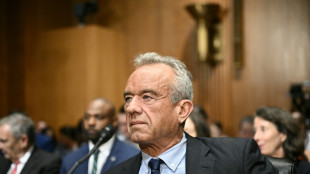
-
 In Nigeria's nightclubs, the bathroom selfie is king - or, rather, queen
In Nigeria's nightclubs, the bathroom selfie is king - or, rather, queen
-
Glitter and Soviet nostalgia: Russia revives Eurovision rival contest

-
 EU seeks 'face-saving' deal on UN climate target
EU seeks 'face-saving' deal on UN climate target
-
Busan film competition showcases Asian cinema's 'strength'
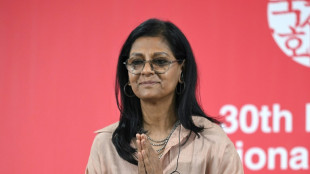
-
 Senational Son bags first MLS hat-trick as LAFC beat Real Salt Lake
Senational Son bags first MLS hat-trick as LAFC beat Real Salt Lake
-
Title rivals Piastri, Norris bid to secure teams' crown for McLaren

-
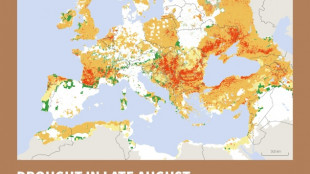 Europe, Mediterranean coast saw record drought in August: AFP analysis of EU data
Europe, Mediterranean coast saw record drought in August: AFP analysis of EU data
-
Australia unveils 'anti-climactic' new emissions cuts
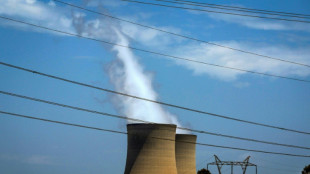
-
 Warholm and Bol headline hurdling royalty on Day 7 of Tokyo worlds
Warholm and Bol headline hurdling royalty on Day 7 of Tokyo worlds
-
'Raped, jailed, tortured, left to die': the hell of being gay in Turkmenistan
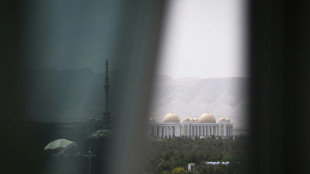
-
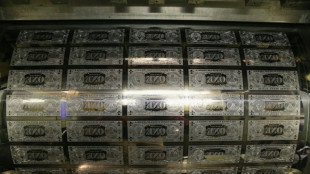 Asian markets fluctuate after Fed cuts interest rates
Asian markets fluctuate after Fed cuts interest rates
-
Dodgers ponder using Ohtani as relief pitcher

-
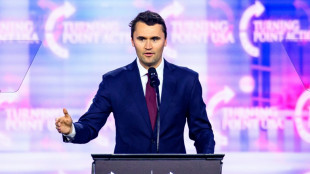 US adversaries stoke Kirk conspiracy theories, researchers warn
US adversaries stoke Kirk conspiracy theories, researchers warn
-
Jimmy Kimmel show yanked after government pressure on Kirk comments

-
 Canada confident of dethroning New Zealand in Women's World Cup semis
Canada confident of dethroning New Zealand in Women's World Cup semis
-
Australia vows to cut emissions by 62 to 70% by 2035
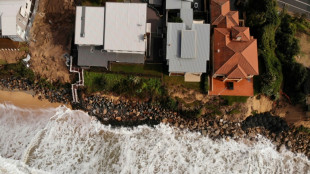
-
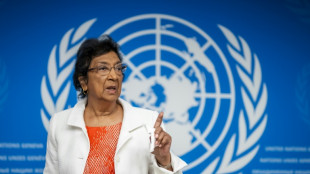 Top UN Gaza investigator hopeful Israeli leaders will be prosecuted
Top UN Gaza investigator hopeful Israeli leaders will be prosecuted
-
Japan seeks to ramp up Asian Games buzz with year to go
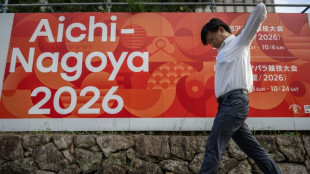
-
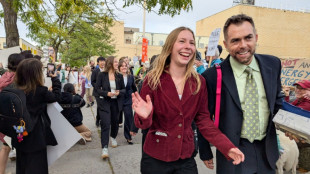 Judge weighs court's powers in Trump climate case
Judge weighs court's powers in Trump climate case
-
Australian scientists grapple with 'despicable' butterfly heist

-
 US faces pressure in UN Security Council vote on Gaza
US faces pressure in UN Security Council vote on Gaza
-
As media declines, gory Kirk video spreads on 'unrestrained' social sites

-
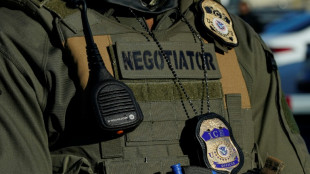 'I don't cry anymore': In US jail, Russian dissidents fear deportation
'I don't cry anymore': In US jail, Russian dissidents fear deportation
-
Jimmy Kimmel show off air 'indefinitely' after his Kirk comments

-
 Meta expands AI glasses line in a bet on the future
Meta expands AI glasses line in a bet on the future
-
Trump's UK state visit gets political after royal welcome
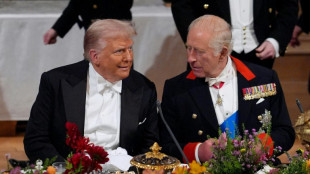
-
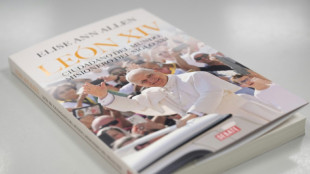 Pope Leo puts the brake on Church reforms
Pope Leo puts the brake on Church reforms
-
ABC says Jimmy Kimmel off air 'indefinitely' after Charlie Kirk comments

-
 Tourists return to Peru's Machu Picchu after community protest
Tourists return to Peru's Machu Picchu after community protest
-
Simeone calls for more protection after Liverpool scuffle

-
 Trump gets lavish UK banquet - and an awkward guest
Trump gets lavish UK banquet - and an awkward guest
-
Colombia's Restrepo aims to make history as World Athletics head

-
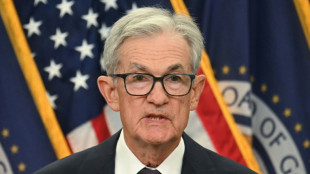 US stocks finish mixed as Fed cuts rates for first time in 2025
US stocks finish mixed as Fed cuts rates for first time in 2025
-
Palmer blames 'lack of concentration' for Bayern defeat

-
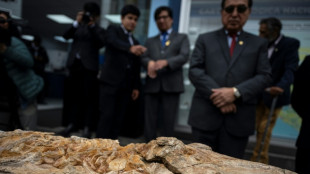 12-million-year-old porpoise fossil found in Peru
12-million-year-old porpoise fossil found in Peru
-
Van Dijk grabs Liverpool win, PSG start Champions League defence in style

-
 Kane doubles up as Bayern sink Chelsea in Champions League
Kane doubles up as Bayern sink Chelsea in Champions League
-
Van Dijk snatches Champions League win for Liverpool as Simeone sees red

-
 Cardi B expecting child with football player boyfriend Diggs
Cardi B expecting child with football player boyfriend Diggs
-
Kvaratskhelia stunner helps holders PSG to winning Champions League start

-
 Thuram on target as Inter Milan cruise at Ajax
Thuram on target as Inter Milan cruise at Ajax
-
Chimps ingest alcohol daily: study
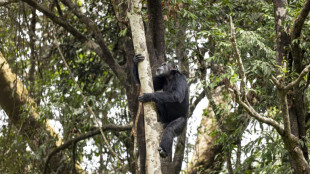
-
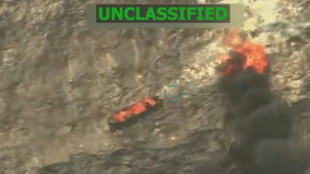 With eye on US threat, Venezuela holds Caribbean military exercises
With eye on US threat, Venezuela holds Caribbean military exercises
-
Only 40% of countries have booked lodging for Amazon climate meet
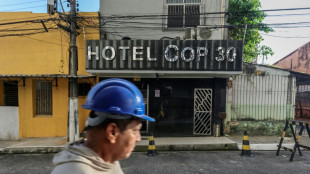
-
 Louboutin taps Jaden Smith to lead well-heeled shoemaker's men's line
Louboutin taps Jaden Smith to lead well-heeled shoemaker's men's line
-
Pakistan beat UAE to set up India rematch in Asia Cup

-
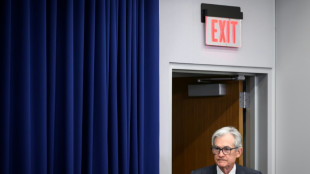 US Fed makes first rate cut of 2025 over employment risks
US Fed makes first rate cut of 2025 over employment risks
-
US sprint star Kerley joins drug-fueled Enhanced Games


'Las Vegas in Laos': the riverside city awash with crime
Rising from the muddy fields on the Mekong riverbank in Laos, a lotus tops a casino in a sprawling city which analysts decry as a centre for cybercrime.
Shabby, mismatched facades –- including an Iberian-style plaza replete with a church tower, turrets and statues -- stand alongside high-rise shells.
The Golden Triangle Special Economic Zone (GTSEZ) is the most prominent of more than 90 such areas established across the Mekong region in recent years, often offering people reduced taxes or government regulation.
Traffic signs in the GTSEZ are in Chinese script, while everything from cigarettes to jade and fake Christian Dior bags are sold in China's yuan.
Analysts say the towers are leased out as centres operating finance and romance scams online, a multibillion-dollar industry that shows no signs of abating despite Beijing-backed crackdowns in the region.
The GTSEZ was set up in 2007, when the Laos government granted the Kings Romans Group a 99-year lease on the area.
Ostensibly an urban development project to attract tourists with casinos and resorts, away from official oversight international authorities and analysts say it quickly became a centre for money laundering and trafficking.
The city has now evolved, they say, into a cybercrime hub that can draw workers from around the world with better-paying jobs than back home.
Laundry hung out to dry on the balconies of one high-rise building supposed to be a tourist hotel, while the wide and palm-lined boulevards were eerily quiet.
It is a "juxtaposition of the grim and the bling", according to Richard Horsey of the International Crisis Group.
It gives the "impression of opulence, a sort of Las Vegas in Laos", he said, but it is underpinned by the "grim reality" of a lucrative criminal ecosystem.
- 'Horrendous illicit activities' -
In the daytime a few gamblers placed their bets at the blackjack tables in the city's centrepiece Kings Romans Casino, where a Rolls Royce was parked outside.
"There are people from many different countries here," said one driver offering golf buggy tours of the city, who requested anonymity for security reasons. "Indians, Filipinos, Russians and (people from) Africa."
"The Chinese mostly own the businesses," he added.
Cyberfraud compounds have proliferated in special economic zones across Southeast Asia, according to the UN Office on Drugs and Crime.
Kings Romans' importance as a "storage, trafficking, deal-making, and laundering hub (is) likely to expand", it said in a report last year, despite crackdowns on illegal activities.
The founder of the Kings Romans Group and the GTSEZ is Zhao Wei, a Chinese businessman with close links to the Laos government, which has given him medals for his development projects.
He and three associates, along with three of his companies, were sanctioned by the US Treasury in 2018 over what it called "an array of horrendous illicit activities" including human, drug and wildlife trafficking and child prostitution.
Britain sanctioned him in 2023, saying he was responsible for trafficking people to the economic zone.
"They were forced to work as scammers targeting English-speaking individuals and subject to physical abuse and further cruel, inhuman and degrading treatment or punishment," Britain's Treasury said.
The same year and again last August, authorities in China and Laos cracked down on cyberfraud operations in the GTSEZ, raiding offices and arresting hundreds of suspects.
- 'Violence doesn't always pay' -
With public anger in China mounting, over both scamming itself and alleged kidnappings, Beijing instigated raids this year on centres in Myanmar and Cambodia.
The operations primarily targeted Chinese workers, thousands of whom were released and repatriated, along with hundreds of other foreigners.
Some say they are trafficking victims or were tricked and forced to scam people online, but some authorities say they are there voluntarily.
Scammers have adapted by shifting their locations and targets, specialists say, and Horsey explained that trafficking and abuses have reduced as the business model has developed.
"If you're trying to scale and produce a huge business... violence doesn't always pay," he said.
"It's better to have motivated workers who aren't scared, who aren't looking over their shoulder, who are actually free to... do their job."
Beijing realises it cannot completely stop criminality in the region, so prefers to manage it, he added.
Chinese authorities can "pick up the phone" to Zhao and tell him: "Don't do this, limit this, don't target Chinese people", he said.
That "is actually more valuable for China than trying to eradicate it everywhere and just lose all influence over it".
The United States Institute for Peace estimated in 2024 that Mekong-based criminal syndicates were probably stealing more than $43.8 billion annually.
Representatives of both the GTSEZ and Kings Romans did not respond to AFP's repeated requests for comment, while Zhao could not be reached.
The Laos government could not be reached for comment, but the official Lao News Agency said after last year's busts that the country was "committed to decisively addressing and eliminating cyber-scam" activity.
G.Schmid--VB
